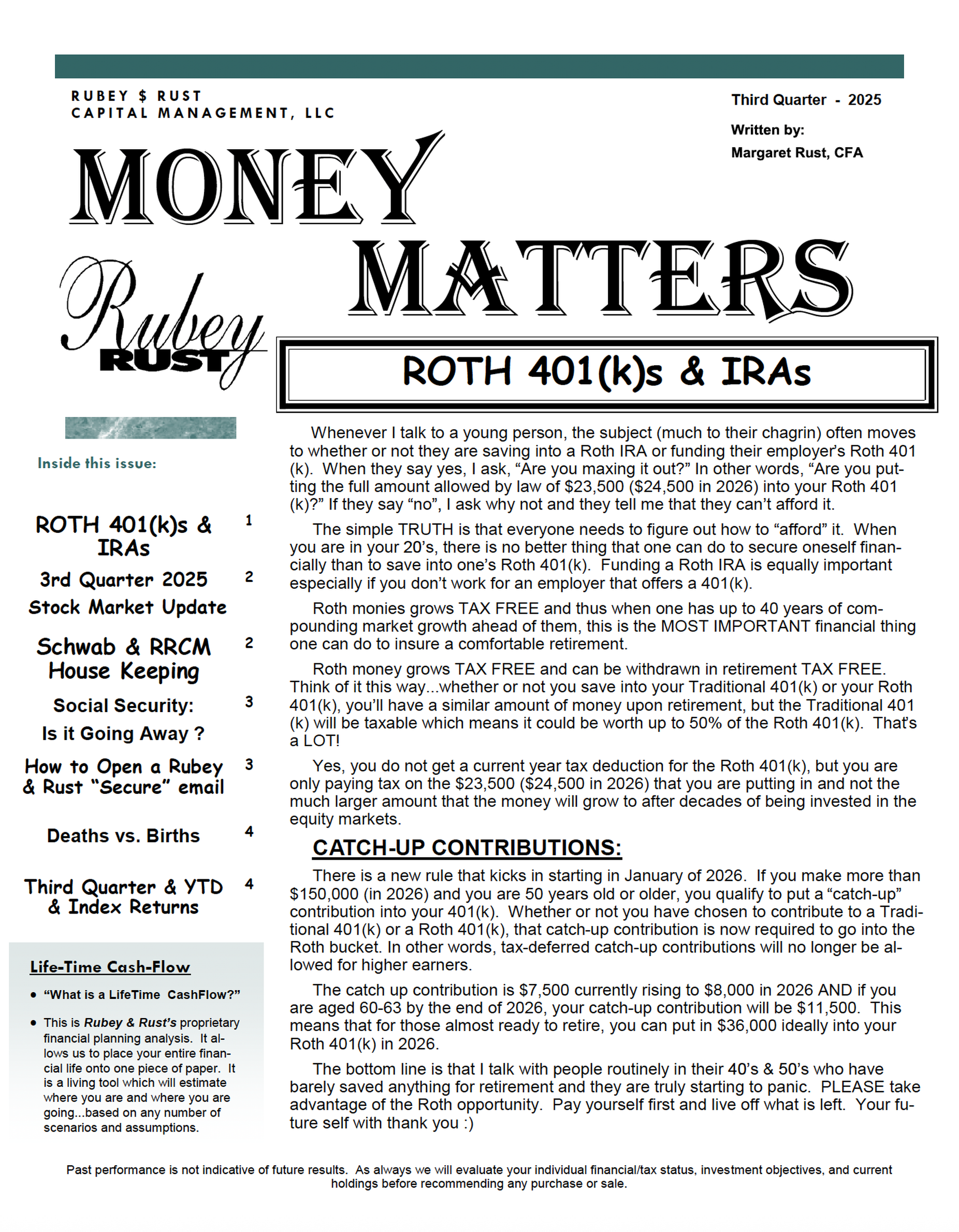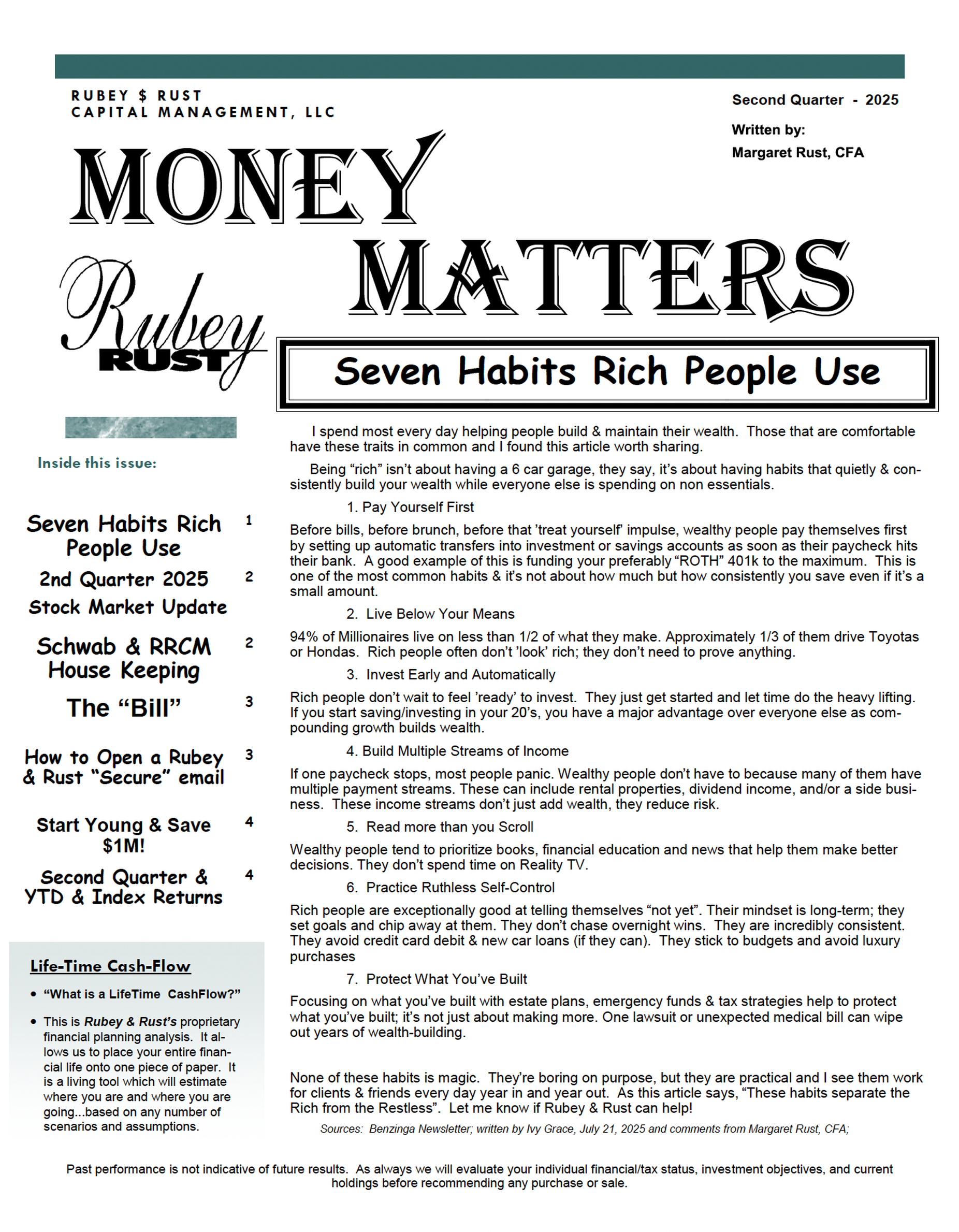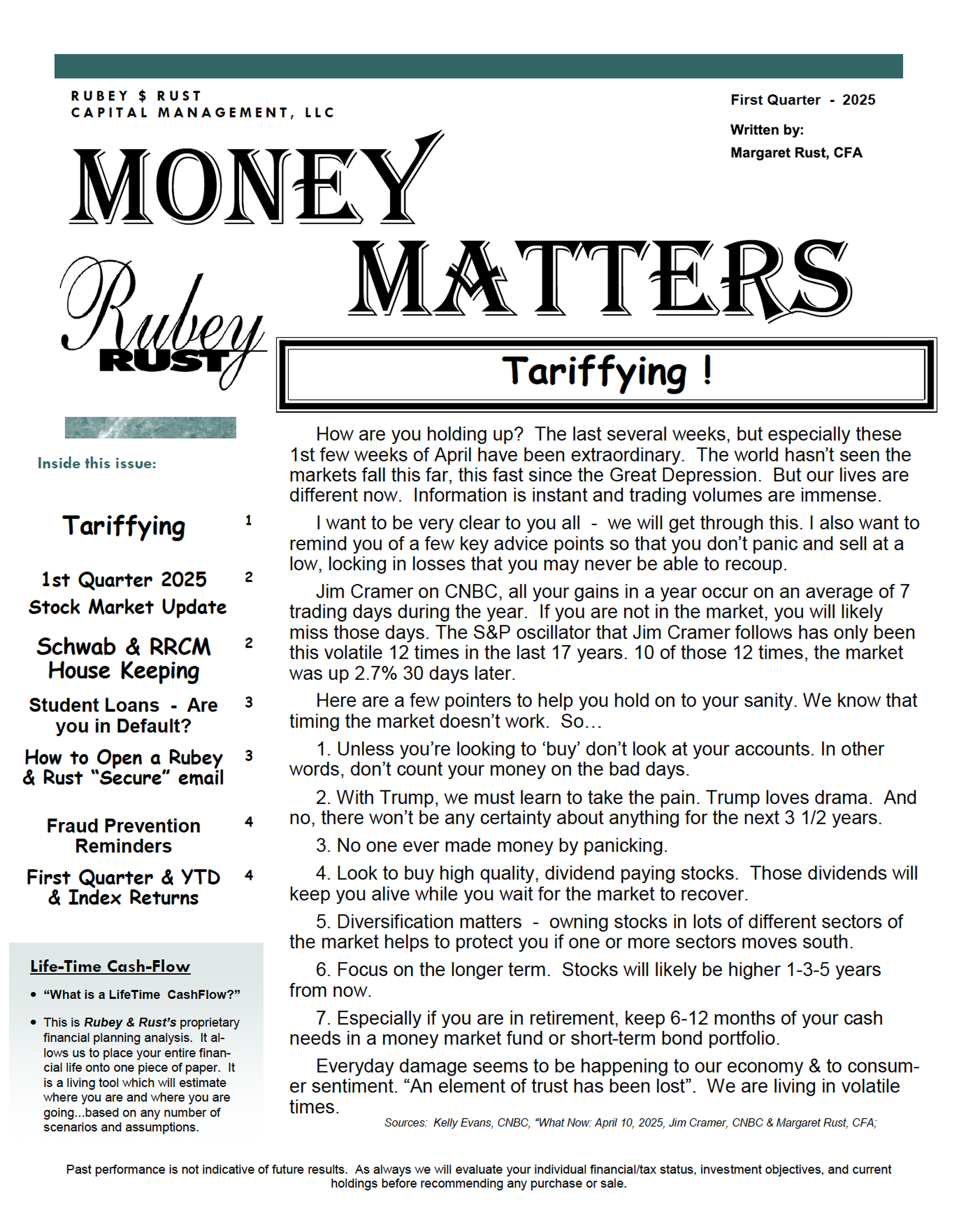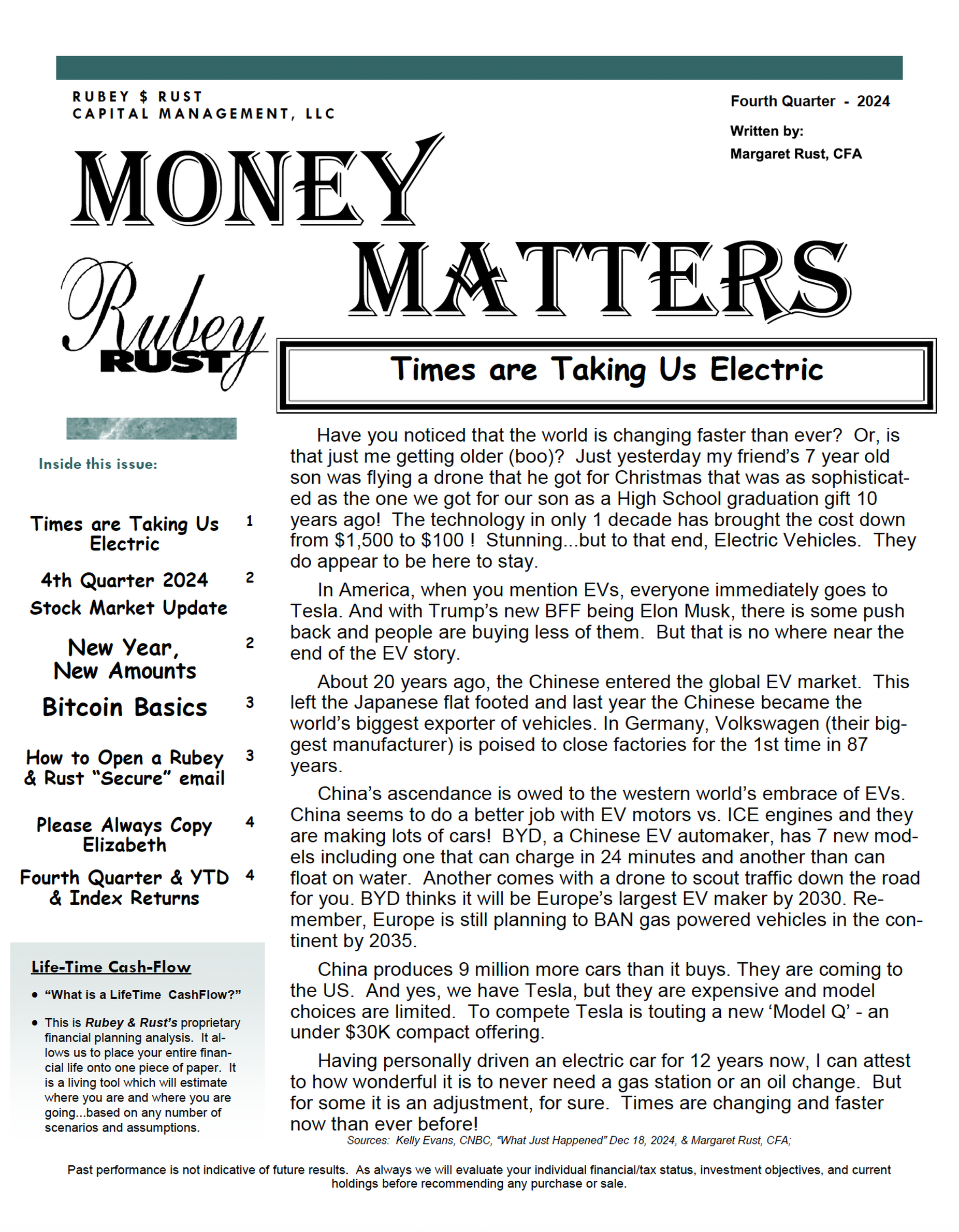
Lighthouse: Women Leading The Way In Finance
The following is an excerpt used by permission from Maya Peterson’s book Lighthouse: Women Leading The Way In Finance published on March 25, 2020
Lighthouses in Margaret’s Words
“My dad inspired me from an early age to participate in the stock market. He taught me technical analysis, and I even charted stocks for him because back then, we didn’t have computers! It was my dad who started studying financial planning as he was transitioning to a semi-retired life in his mid-50s. I joined him at UC Berkeley, and that’s when Rubey & Rust was born. We started our business together in 1992, and he brought not only wisdom but all his friends (to be our clients) who knew that he “knew” what he was doing. I learned everything I know about technical analysis from him. Around 1998 we began studying for the CFA designation together and that really gave us entry to the investing world. Dad was my study buddy, and we had such fun working on our CFAs together.
My mom was a great example of a strong woman who fought for equal rights and equality in the academic world, and in the workplace, and, frankly, in every aspect of her life. She is a Ruth Bader Ginsburg in her own right. She set the example for education (she has degrees from Stanford, Harvard, and UC Berkeley) and never, ever settled for second best. She (and I) come from a long line of strong, independent women who left great marks on the world by being smart, classy, and stubborn as hell. I think I follow that mold pretty well.
My gram (my mom’s mom) was one completely amazing woman as well, fighting each and every day to do what was right and what was kind. Born in 1905, she barely survived and then went on to live ninety-five years. She saw women get the vote and she graduated from the University of Wisconsin with a degree in economics! She lived many lives in her ninety-five years and was a great influence on me. “Always be a blessing in other people’s lives”: that was her mantra, and I try hard every day to follow her example. Neither of these women ever kept quiet if something needed to be said.
And I couldn’t have done any of it without my wholly supportive husband, Harrold. He has always given me complete freedom to follow my dreams and pursue goals that weren’t always logical when having and raising three children. He was always there helping and supporting. Now, almost thirty years later, those efforts have paid off, but there were lots of early years where it was all study or work and not much money. He’s a gem through and through!
There are angels that watch over me (believe me they do!) and then there’s Harrold: he’s my angel in this life.”
“I’ve always found other women to be very supportive and friendly and I strive to share my hard-built confidence with those who will follow.”
Early Years
Margaret Rust has always been fascinated with money. Childhood monetary gifts were saved or given to her parents for investment. She kept a journal of all the money she made from doing her various chores. Back in the 1970s, it was $0.25 for taking out the mail and $1.00 for practicing the piano or doing the dinner dishes. In 1976, when she was eleven, she begged her mom to help her open a checking account. Her friends thought she was crazy, but Margaret thought it was the coolest thing ever to be able to write a check. Her father worked in sales and marketing at IBM. He was always interested in the stock market and did lots of technical analysis in his free time. Margaret often went with him to his office in San Francisco to help him plot stock charts and make copies on a giant Xerox machine.
In high school, the glamour of the fashion industry attracted Margaret to take a summer job at Nordstrom. When she started college at UC Davis in 1983, she followed her infatuation with fashion, and majored in textiles and clothing. However, she never lost sight of finance. Her major was flexible and allowed for classes in accounting, finance, and investing. “I knew I had found my passion,” she remembers. Women were not encouraged to seek jobs in finance, and she didn’t have the confidence or support network to try a job in finance, so she “took the easy job” and returned to Nordstrom after graduation.
While Nordstrom was fun, it wasn’t finance. Working as a department manager offered some challenges, but also frustrations. Margaret tried to encourage her colleagues to invest in their 401(k)s and employee stock purchase plans (ESPPs) and be conscious of their spending habits, ideas that most people did not learn about in school. First jobs are always enlightening, and the world is not always a friendly place, but taking care of the people who worked for her and gave her their loyalty and trust became a paramount priority for Margaret. After learning many lessons, including the fact that greed and ego often get in the way of quality management and leadership, Margaret left Nordstrom with a keen understanding that she wanted to work for herself. Observing how empowering good leadership can be motivated her to build a career in a place where she could really make a difference. Teaching and promoting financial literacy evolved into the approach she would take to run her advisory firm and take care of her clients.
As for most people, Margaret’s early working years showcase a lot of personal growth, learning about limitations, and realizing dreams. At Nordstrom, Margaret learned how important it was for managers to inspire loyalty in their employees, empower them, help them follow their dreams, and protect them. Some of her employees may have been working in retail because they did not have any other choices. As their manager, Margaret knew she had a chance to help them make a better life. One of her founding philosophies is “Save your money because money gives you choices and choices give you freedom.” She remembers when, at twenty-four years old, she was told by a store manager to make some goals for herself and that “80 percent of reaching a goal is writing it down.” So she wrote down, “I want to have $1 million by the time I am thirty-five years old.” It seemed a lofty goal because at that time, she could not even qualify for a mortgage despite being gainfully employed and having the down-payment money. As a single woman, her father had to cosign her first mortgage.
Path to Success
During those same early years, Margaret’s dad was preparing to retire from IBM, which offered retirees a program that paid them to get a degree in whatever discipline they wanted. As an investment guru, Margaret’s dad chose financial planning. The two of them decided to go back to school together. As they both had day jobs, they attended UC Berkeley’s graduate certificate program at night and graduated in 1992 with the Personal Financial Planning (PFP) certification. They couldn’t wait to get started!
Rubey & Rust
At this point, Margaret left Nordstrom and with her father, Charles Rubey, founded Rubey & Rust Capital Management. To help launch their new venture, they found a small private broker dealer, Protected Investors of America. They joined the brokerage firm and rented office space. In order to acquire some initial clients, they sent out a letter to everyone they knew (email didn’t exist in 1992), and because of the credibility her father brought to the table, they received responses immediately. “We never looked back,” she remembers. “We were busy right away.” Joining Protected Investors of America helped them tremendously, but it came with struggles. The financial industry was much more of a man’s world then than it is now. The president at the time told her that she needed to “take her pretty face and sell mutual funds.” She struggled with sexism in the beginning but held firm. At almost six feet tall, most men knew she was not to be messed with! Nevertheless, her lack of confidence nagged at her. Her new goal was a financial education beyond reproach: a chartered financial analyst (CFA) certification.
The Importance of a CFA
For the first few years, her dad was the guy at the firm and Margaret took care of the many administrative details required to run a practice. At twenty-seven years old, she decided she wanted something more. She wanted her dad’s friends and their clients to respect her and her financial advice despite her young age. They were equal partners and, she felt, deserved equal attention in their roles. By this point, Margaret was married and was fortunate to not need to work. Her dad was officially retired, which meant they both had the freedom to work for the pure joy of the business and to study! And so began the goal of attaining the CFA designation, which is a rigorous process. It took her five years, all while bringing up her children. The tests are offered only once each year, and back then, levels two and three necessitated six-hour essay exams. But knowledge is power, and the CFA curriculum is extensive. Not only was her education improving but with a CFA after her name, Margaret noticed that doors were opening. She felt respected, and she gained the confidence she so desperately sought. Her biggest problem as a woman was that men questioned her credibility, but once they knew she was a CFA, her opinion mattered—and that felt great.
Growing the Business
A lot happened between Margaret’s writing down her goal and her thirty-fifth birthday. She started a business, married, had three children, attained the CFA designation, and by the time she was thirty-five, her net worth was north of her $1 million goal. She had achieved that lofty, seemingly impossible dream. She worked tirelessly saving, investing, and taking charge of the family’s finances. Years later, Margaret’s daughter set a similar goal, and by the age of twenty-five, she, too, had saved enough to “walk away.” Margaret always counsels, “Money gives you choices and choices give you freedom. If you run into a jerk, you need to have the money and the confidence to say, ‘Wow!’ and walk away.”
Over time, life brought challenges as Margaret’s mom got sick and her dad had to spend less time working in the business. Margaret moved the office to her house which, as it turned out, made the firm even more profitable. She jokes that “the parking is free, and the coffee is a lot better.” After her mother recovered, her father began to work more regularly again, and all the way up until his eventual passing in 2023, her dad, still did security analysis and flew down to California once a quarter to meet with clients.
Rubey & Rust’s clients consist of anyone who needs good and honest advice. They range from the very wealthy, who don’t need as much financial planning as they need investment management, to younger people who need their hands held. The firm remains focussed on building a client base of millennials because “they are our future.” Margaret’s motto is “If you don’t love dealing with your money, then hire her [Margaret], and she will love your money for you.” Her husband has always been a tremendous support, taking care of the kids during those long study periods and giving her the freedom to work long hours at a low-paying job until Rubey & Rust Capital Management was truly established. When Rubey & Rust Capital Management became a strong and sustaining business, Margaret’s husband had the financial freedom to start a company of his own. Now, they are grateful to both be working hard to make our world a better place.
Philosophy
Margaret’s early work experience taught her the importance of setting personal and professional goals, and that the simple act of writing those goals down gives them power. Now, as she runs her firm, goal setting is an annual ritual. “What shall we accomplish this year?” is asked every January. Interestingly, those goals always materialize. Her guiding philosophies revolve around service, kindness, and empowerment. While she remains a woman in a man’s industry, she takes pride in her accomplishments. Allowing herself to feel empowered is often as much a challenge as counseling others to be brave. Whether it be conferences or professional lectures, she knows she has earned the right to be there and to be heard. “I’ve always found other women to be very supportive and friendly and I strive to share my hard-built confidence with those who will follow.”






